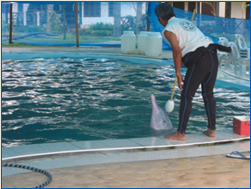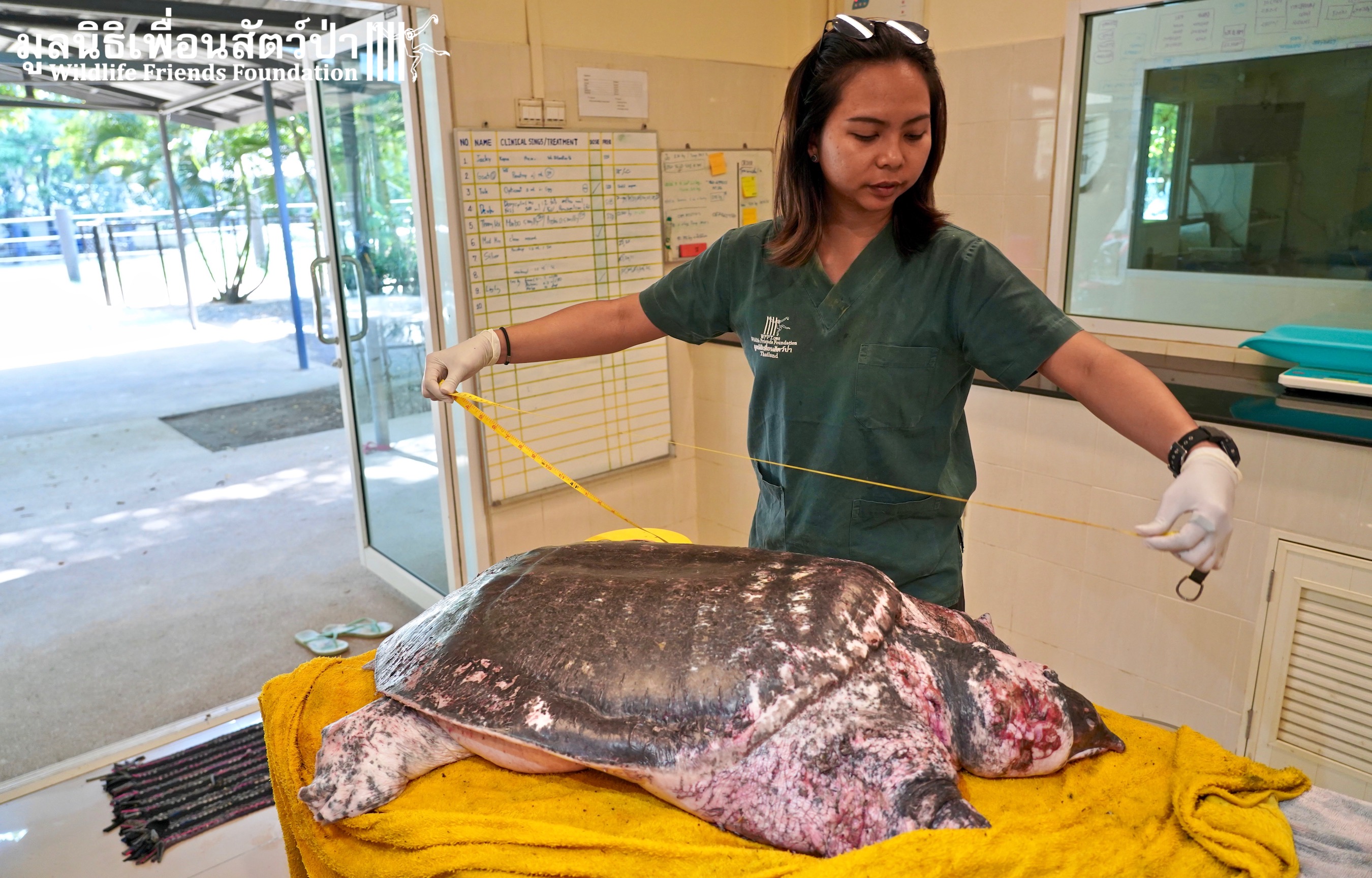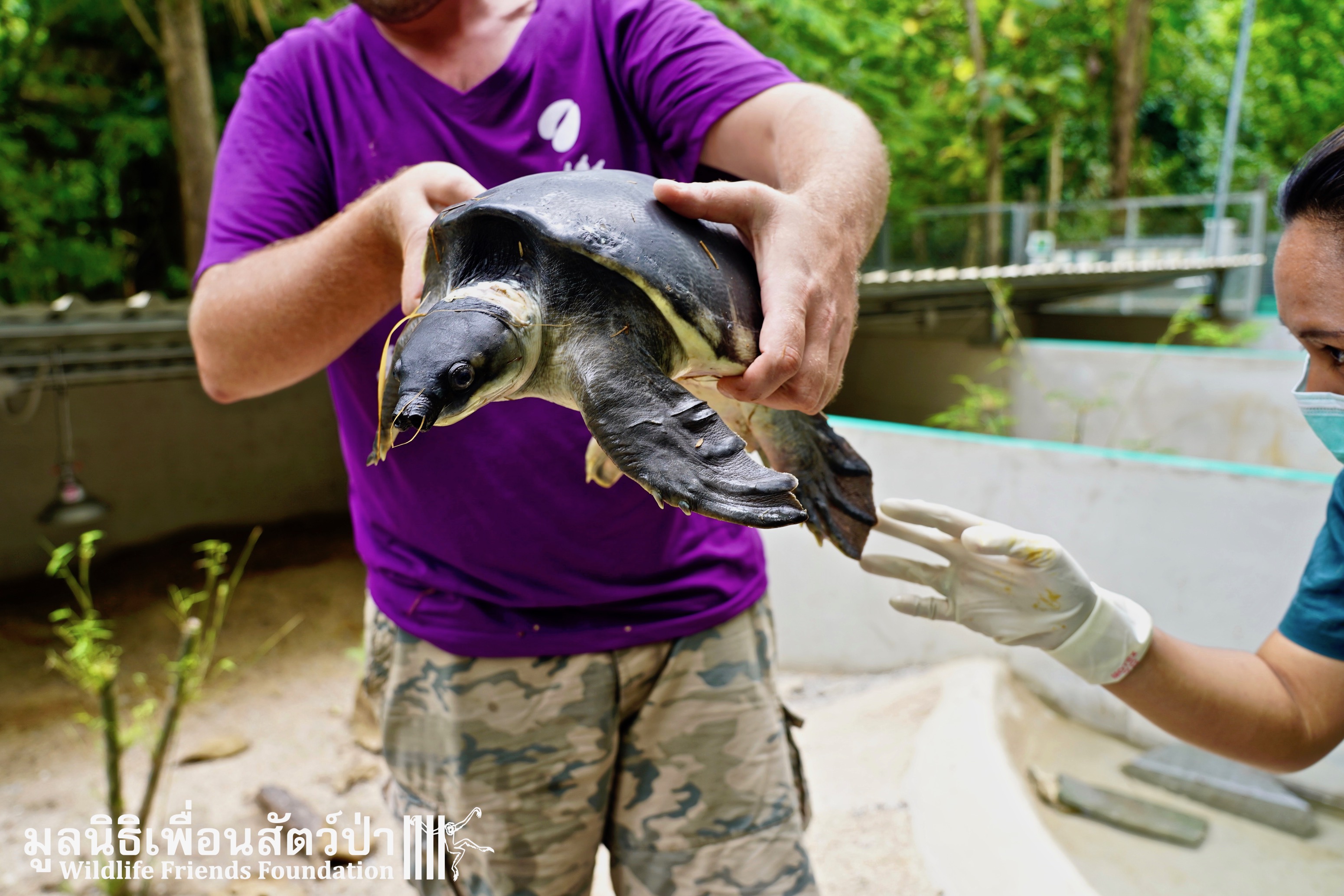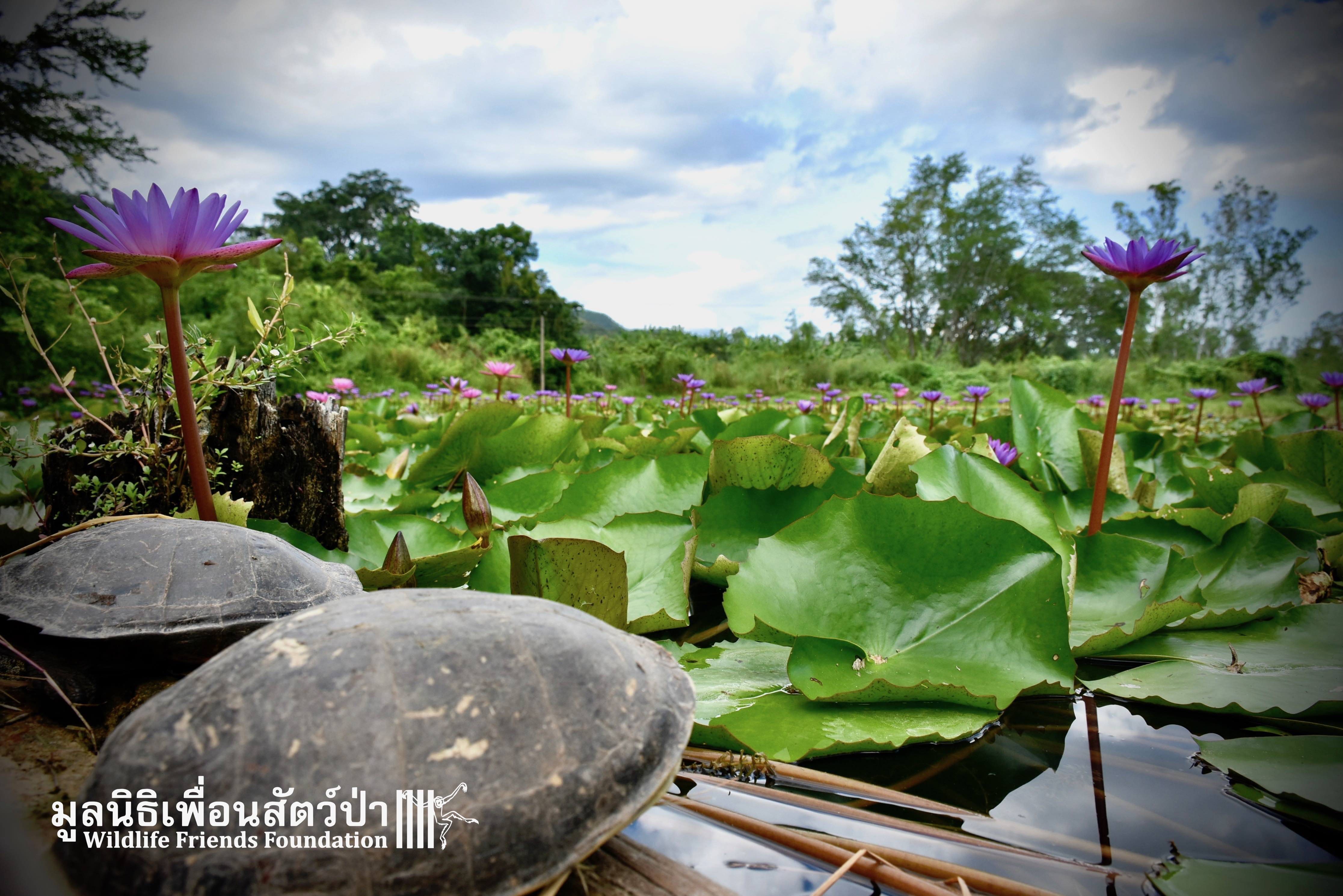WFFT had an action packed Saturday morning with a release and surprise emergency rescue! Some…
Dolphin confiscation and rescue on Samui!
A wild caught rare pink dolphin (Indo-Pacific Humpback Dolphin) that was kept in a small swimming pool (left) for over three months at a resort on the island of Samui in Southern Thailand was successfully released back into the Gulf of Thailand with help from the Marine Research & Rescue Project.
Veterinarians and specialists from the Wildlife Friends of Thailand (WFFT) and Phuket Marine Biological Center, a sub-division of the Department of Marine and Coastal Resources (DMCR), teamed up to make preparations and to ensure the safety of the endangered species for the delicate operation.
Using a custom made stretcher, the team moved the dolphin from the Samui Orchid Resort’s swimming pool onto a boat provided by Scuba Planet, a diving company that had cancelled its dive trips for the day.
The dolphin was under constant monitoring by vets from WFFT/MRRP and DMRC during the two and a half hour journey to an area 35 km off the island often spotted with pink dolphins. Within seconds after lowering into the sea, the dolphin swam off and disappeared to his freedom. 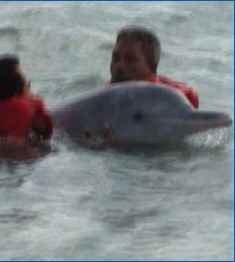
Edwin Wiek said that “the release was very successful, with three days of preparations and the help of several officials, volunteers and local business people we were able to set up a smooth operation where minimum amount of stress was put upon the dolphin. Just like to dolphin a year ago this one as also seemed happy to regain its freedom, swimming off like a rocket into the sea.”
This is the second dolphin the Wildlife Friends of Thailand have helped to release back to the sea. Last year, WFFT was part of the team with the DMCR and rescued and released into the Andaman Sea a dolphin which the Asian tsunami had trapped into a small lagoon half a mile from the beach. The owner of the island resort had claimed that the dolphin was kept at the resort for medical treatment only after it was “accidentally caught in the nets of a fishing trawler”. However, witnesses reported seeing the dolphin being trained to perform for tourist shows.
DMCR Director-General Dr. Maitree Duangsawasdi ordered the study of a possible release for the sake of the dolphin’s welfare and the conservation of its species after a formal complaint sent to various government agencies by WFFT founder and director Edwin Wiek “We would like to praise the Thai authorities for acting swiftly to bring this unfortunate animal back to the wild”, says Dr Barbara Maas, Chief Executive of UK-based conservation group Care for the Wild International which offered financial aid for the release operation. “They are sending a clear message to those who deliberately catch dolphins in fishing nets and claim that it was accidental, that this kind of personal profiteering at the cost of Thailand’s wildlife heritage cannot be tolerated.”
“Dolphins are not easily caught and try fiercely to come loose from the nets. Most are severely injured causing infections that prove to be fatal and many die from dehydration or severe stress caused by captivity and training for shows. A similar zoo with dolphins in Thailand was founded 15 years ago in Chanthaburi Province with the “rescue” of one dolphin and currently houses over 20 wild-caught dolphins, which are a popular attraction for visitors to swim with these endangered animals”, says Edwin Wiek.
The capturing and trade of all species of dolphin is illegal under both Thai and international law. The Indo-Pacific Humpback Dolphin is categorized under Appendix 1 of the CITES (Convention on the International Trade in Endangered Species). About 500 to 600 Indo-Pacific humpback dolphins are believed to inhabit the seas around Thailand, migrating between the Indian and Pacific oceans.

